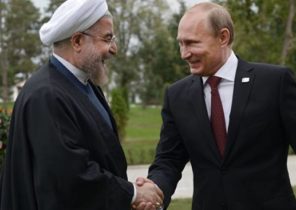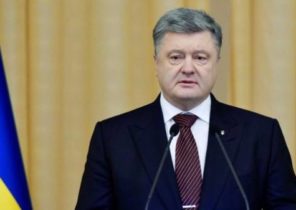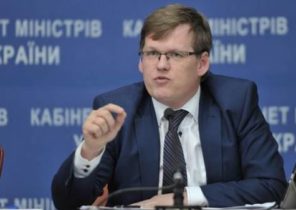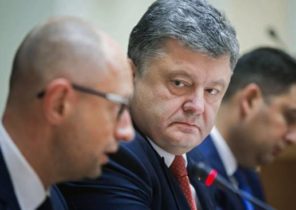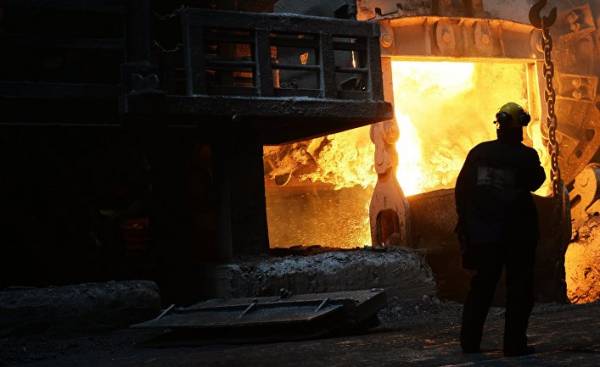
The company BCL Mine stopped working six months ago, and today there is almost no hope of recovering those 4.5 million jobs that were lost as a result of its closure. Currently, attempts are being made to negotiate the purchase of the assets of BCL Group company from the United Arab Emirates, which is rumored to be showing interest in the purchase of this mining and metals group. After analyzing the events that led to the sudden closure of this company and trying to offer some ways out of the situation, Brian Benza from Business Week came to the conclusion that, although the deal on the implementation of the share in the Nkomati Mine was the cause of the hasty closure of BCL, is a South African mining company is part of the solution, or perhaps even the only way to achieve sustainable and effective restoration work of the enterprise in Seletar.
The sudden closure of the company BCL was mainly triggered by the failed transaction on purchase of 50% stake in Nkomati Nickel assets from the Russian company “Norilsk Nickel”. A few days after the closure of the enterprise the representative of BCL Aulani, Ficani (Khaulani Fichani) hinted in an interview with BusinessWeek that the preservation of control over the process of elimination was one of the reasons why the government decided to go for voluntary liquidation of the company.
This happened about a month after the Department of mineral resources South Africa gave its consent for sale of shares — according to the Russians, this consent was the only condition for this agreement was binding. Meanwhile, representatives of the BCL now say in South African courts that the Department was not supposed to give his permission, because BCL does not have the necessary capital in order to meet the requirements for shareholder Nkomati.
The origins of the transaction on the sale of shares in Nkomati company BCL
According to the Polaris II strategy, adopted in 2012, the BCL was looking for ways to diversify their income in the face of the lower percentage of Nickel and copper in ores mined in its mines. The decline in ore grade has resulted in an increase of extraction costs, because it had to do more of a deep mine. All this occurred against the background of reduction of prices on Nickel and copper in the international markets.
The Polaris II strategy included the purchase of 50 percent stake in South African joint venture Nkomati Mine, which was operated by the South African company African Rainbow Minerals (ARM) and Norilsk Nickel. This purchase would allow the BCL to purchase high quality raw materials for processing in a metallurgical plant of the company. This is a metallurgical enterprise of the company BCL is one of the largest enterprises of its kind in the world. Deal 2014 also involved the transfer of BCL shares of Norilsk Nickel, at Tati Nickel Mining Company (TNMC).
To prepare for the purchase of a share in Nkomati, BCL, with government support, undertook a substantial restructuring of its balance sheet and transferred by the government loans to equity. In essence, this process was a debt cancellation, because the government already owned all the shares. Earlier, when the company BCL has fallen on hard times, the government always came to her rescue and provided her with loans on very lenient terms. However, BCL also extinguished a significant proportion of its debt to the government. To implement the strategy Polaris II, BCL was attached to its sister company BCL Investments. Later, the government’s share was transferred to the new government venture Minerals Development Company of Botswana (MDCB).
The deal with Norilsk Nickel was in the form of the contract of purchase and sale of shares which was signed on 17 October 2014. Its implementation depended on several conditions, including the requirement for obtaining consent from regulators in Botswana and South Africa. The consent of the Supervisory authorities in Botswana for the purchase of TNMC was obtained quite quickly, while permission to purchase shares in Nkomati had to wait.
Lack of funds and failure MDCB
In a statement regarding the audited financial statements of BCL in 2014, it was noted that BCL at that time had no debt, so the acquisition of a stake in Nkomati and BCL other plans it was possible to Finance a new loan with the priority right requirements provided by commercial banks. Nedbank and Absa was mentioned as a possible co-financier of the parties. At the moment the total assets of the BCL reached 4,349 billion pool, and the amount of financial obligations — a pool of 1,618 billion.
In accordance with these data, the balance of BCL could be described as completely healthy, which is reflected in the comments of the Chairman, who noted that BCL has adequate resources to 2015 and the balance calculated for the entire period of existence of the mines.
According to the strategic document BCL 2016, for the purchase of shares in Nkomati originally planned to spend to 305.9 million dollars, but in a series of negotiations this amount was reduced to 170.3 million dollars. The acquisition of a stake in Nkomati had to be financed by credits of the first stage and the medium-term bonds. As mentioned earlier, the credits of the first stage was to provide Nedbank and Barclays, which supported the acquisition of a stake in Nkomati and was familiar with the peculiarities of activities of Nkomati. Together they agreed to provide $ 200 million. At the end of 2015, we received another offer on the financing of this transaction by government-backed medium-term bonds (corporate bonds) in the amount of $ 250 million, which was to sponsor the Barclays and that was to produce a BCL.
However, it was reported that the MDCB, the new owner of BCL, made the decision to limit the mandate of the Barclays. In December 2015 this was reported by the BCL. The rest of the funding mechanisms that were considered at the time and was not agreed to. By may 2016, Nedbank informed BCL that he is not going to grant a loan for the implementation of the transaction.
May 16, 2016 representatives of the BCL and MDCB met with representatives of “Norilsk Nickel” in London and asked them to reduce the price of a share in the Nkomati another $ 70 million, citing the drop in world prices for Nickel, the results of the review of the plan of the existence of mines and the likelihood that shareholders Nkomati may have to invest funds to sustain mining activities in the short term and that these funds could reach $ 40 million or $ 20 million on each partner Nkomati.
Lawyers, to which the then leadership BCL appealed on the eve of the London meeting, warned that such discussions may be perceived as a failure to comply with the terms of the contract of buy-sale of shares, which may entail court proceedings. However, the management of BCL have decided that such risks are quite minor, since the parties managed to agree on the two deferred payments.
However, at some point, the MDCB leadership, headed by Paul Smith (Paul Smith), which the government put in charge of this deal, decided that in further negotiations does not make sense, since the funds for the completion of this transaction is simply no.
BCL mine closes
October 9, 2016 the government through MDCB turned to BCL Group with a proposal to undertake the process of voluntary liquidation. The petition stated that BCL 2 more than thousands of creditors, which the group owed more than billion pool. However, the main problem was Norilsk Nickel, which failed to sell a stake in Nkomati. The high court set the date for a preliminary hearing on final liquidation on 7 February 2016.
But in December Norilsk Nickel filed a lawsuit in the High court in Gaborone in an attempt to delay a final decision on the liquidation of the BCL up to the moment when his demands in connection with the contract of purchase and sale of the shares will be considered and satisfied. Under the terms of this agreement, all disputes between the parties shall be considered by the courts in London. While the decision in this case has not been made.
Meanwhile, interim Manager Nigel Dixon-Warren (Nigel Dixon-Warren) filed an application to delay the start of the case in court, saying that the leadership of the MDCB told him about the potential buyer who have demonstrated interest in acquiring the BCL Group.
According to the Minister of mineral resources, environmental technologies and energy security of the Kindergarten Kebonang (Sadique Kebonang), one company from the UAE is currently studying the condition of the assets of BCL. If you believe the site this potential investor, The Emirates House Group, now he has no investment in the African continent in the field of mining. Although its investment arm, Emirates World Investments, has a modest investment portfolio, apparently, it belongs to the government of Abu Dhabi, who has a substantial sovereign Fund.
The future of BCL
Apparently, buying a stake in the Nkomati plays a key role in the future of the company BCL. In addition to high-quality ore with a high content of Nickel compared with BCL or TNMC mines, the acquisition of shares of “Norilsk Nickel” will allow BCL to inherit the mechanisms of supply/sales for the production of Nkomati.
The combination of having to dig deep mines and the falling quality of ore in its own mines give BCL a company with high production costs, unable to make a profit in low world Nickel prices. This suggests that the resumption of the BCL without a share in Nkomati impossible.
To steel company makes a profit, it is necessary to ensure the supply of ore concentrates from Nkomati. Apart from Nkomati in South Africa no other active Nickel mines, which could provide the company BCL raw materials in such volume that would allow it to become profitable. Perhaps the First Quantum project called Endeavor in Zambia will provide part of the necessary supplies, but so far nothing points to the beginning of his work in the near future.
Last week the news that the interim Manager BCL initiated a lawsuit to challenge the consent issued by the South African government to purchase a share in Nkomati in an attempt to cancel the contract of sale, can be seen as an attempt to save BCL afloat and cope with 277 million claim “Norilsk Nickel”, which may nullify all the efforts.
If not action in Norilsk Nickel, investors could buy a BCL from the government at a reasonable price, and then the new investors would revise the terms of the transaction with Norilsk Nickel for the acquisition of a stake in Nkomati and negotiate a better price.
Valuation Nkomati
Valuation of shares in Nkomati is a complex task. Its value can vary within very wide limits, depending on global Nickel prices. However, investment in mining is not done only on the basis of world prices in a specific period of time, because the service life of the mines often much more than 20 years.
Thus, the value of the mine depends on how we estimate demand and world prices for its products in the long term. In that moment, when negotiations began on the sale of shares in Nkomati, the parties have evaluated the prospects for Nickel prices in a more optimistic way than most analysts.
Whatever the outcome of the negotiations on prices with Norilsk Nickel at the time, today it is in any case would have seemed excessive in light of current world prices for Nickel, so the BCL in any case, I would have tried to abandon or to revise the terms of the contract of sale. One of the ways to assess the value is an accounting estimate.
Accounting estimates require that the market value of the investee has been revised on an annual basis. ARM, which owns the second half of Nkomati, in its latest report announced that its 50% share is approximately $ 130 million.
Such estimates does not mean that ARM will sell its stake for the price. She too will count the cost of its share based on the forecasts of future changes in Nickel prices.
The cost Nkomati and BCL or depend on the opinion and forecasts of changes in world prices for Nickel. Overall, the price of Nickel should stay in the region of $ 5.85 per pound to Nkomati has become a valuable asset to the BCL on the basis of calculations of net present value. Of course, if the price of Nickel reaches 8 dollars a pound, Nkomati will be a very valuable asset.
Thus, the question is whether the price of Nickel to rise to its former level and, if you can, when will it happen?
Norilsk Nickel, which is primarily concentrated to Nickel in its international activities, apparently convinced that in the long term, Nickel prices will rise due to the shortage of this metal.
Possible outcomes
Scenario 1: elimination of BCL
If BCL will be eliminated, there would be no winners. In this case, the BCL will cease to exist, and the company’s assets will be sold to using the proceeds to pay its creditors. The assets of the company BCL is estimated too high, therefore, the creditors will likely receive very little, if any, that you will get. Such an outcome is inevitable if an action “Norilsk Nickel” will be satisfied. In this case there will be additional checks in place to establish what went wrong and who is to blame.
Scenario 2: investors will buy BCL
In this case, the BCL will avoid liquidation, and it will be invested to continue to effectively work on. In this scenario the main issue will be that you can do with Nkomati. In this scenario the government may have to sell BCL to a new investor for a symbolic price, to forgive BCL all of its debts, but to take her promise not to negotiate with “Norilsk Nickel”.
